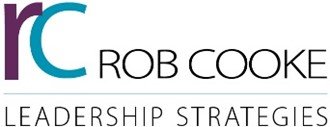
Get Meetings Under Control
Meetings are an essential medium for performing managerial work. They are often considered to be an essential evil. The complexity of the work environment and the need for integration and alignment of multiple functions means that there is a need to collaborate and ‘meet’ with others on a regular basis. Most organizations have a ‘meeting culture’ in that everything seems to require a meeting. Unfortunately, meetings are generally poorly managed, with a great deal of unproductive time.
The following are some suggestions I have for creating a more effective meeting culture.
Meeting Preparation and Planning
If you are the meeting leader it is up to you to carry out these actions, if you are invited to a meeting ask about these items. If they are not in place suggest the meeting be postponed or consider not attending.
Ensure clarity of agenda including meeting purpose and desired outcomes.
Agenda should include desired outcome and time allocation for each agenda item.
Provide agenda and materials related to agenda items at least 24 hours before the meeting. If agendas, pre-reading materials and content are NOT distributed at least 24 hours before meetings, don’t attend or cancel the meeting
Take the time to review the materials to be ready for the discussion. Ask others if they have read the materials. If not, consider rescheduling the meeting.
Ensure clarity of purpose of each agenda item:
To share information on key issues, events, project status, etc.
To request input and advice related to individual areas of responsibility
To make decisions related to identified areas for joint decision making
Ensure clarity on your specific role at the meeting and what you are expected to bring regarding the agenda items. Consider alternative to providing input outside of meetings.
Do not schedule meetings before 10:00 am. The first few hours of the day are when people are most productive so give people time to focus on key tasks.
Don’t attend the parts of meetings that are for information sharing only if the information being shared is not of interest or relevance to you.
During the Meeting
Start meetings on time and keep them as short as possible. If possible, start meetings at 15 minutes after the hour to allow people to arrive on time from previous meetings.
During meetings, don’t rely on the meeting chair to control the meeting; step in when the agenda isn’t being followed, people are going off track, or discussions are not productive. Step in and provide these observations.
Concentrate and listen to others, spend more time asking questions than ‘making a point’.
Electronic devices have no place at a meeting.
Ensure presentations are well prepared, no winging it or rambling. Limit time allowed. Ensure guests are briefed on expectations.
Limit PowerPoint presentations: ensure discipline re maximum lines per slide, maximum words per sentence, maximum of five slides.
Consider stand up and walking meetings.
Ensure closure on all agenda items: What is the action? By when? Who is accountable?
Allocate time for a meeting summary debrief before meeting is over: what are the outcomes, actions, responsibilities, what will be communicated about meeting outcomes and to whom.
October, 2022 | Leadership Development
